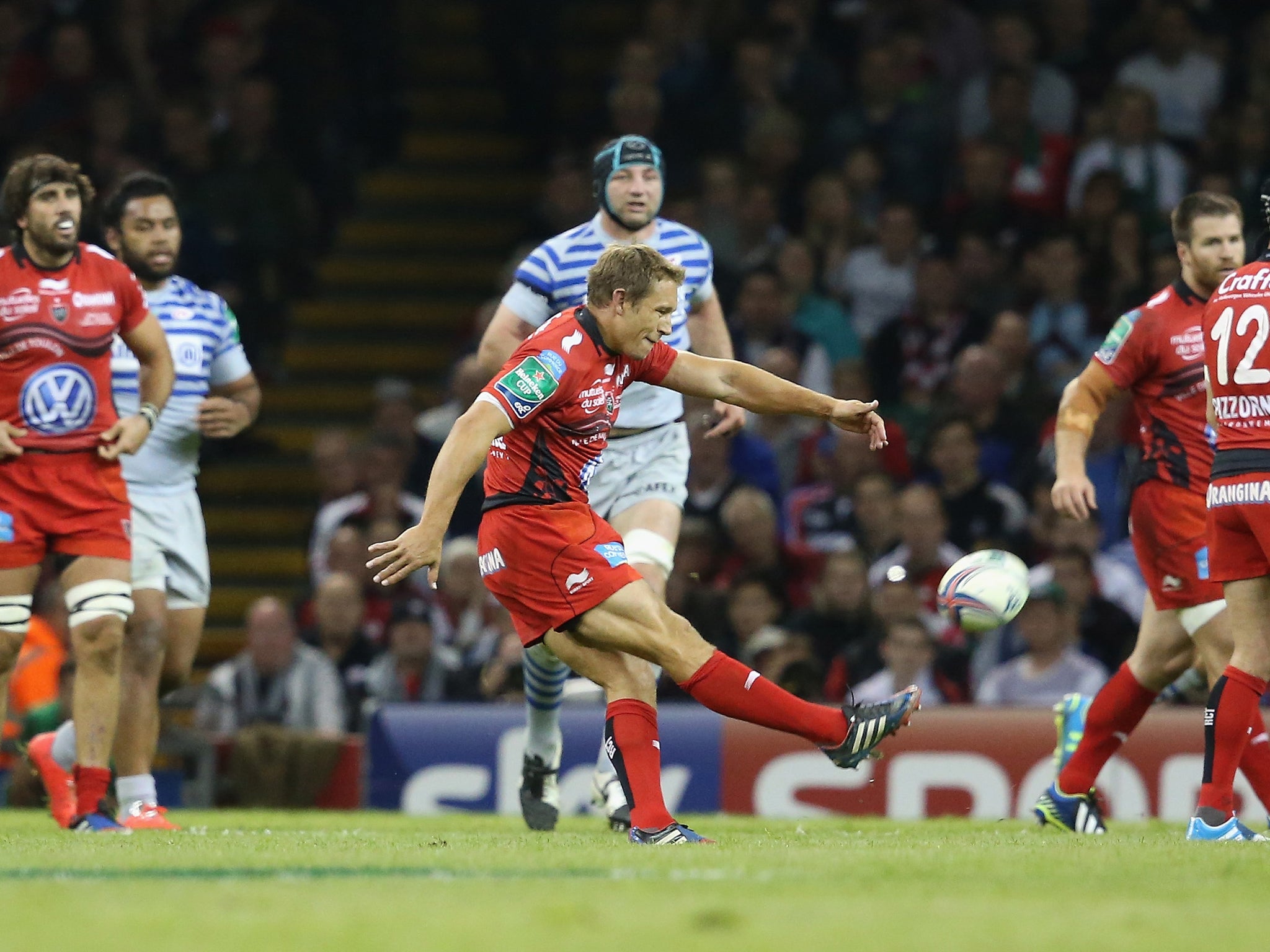Toulon 23 Saracens 6: Jonny Wilkinson and Steve Borthwick - peas in the same pod of collective responsibility
Two stalwarts of the English game bid farewell in Cardiff

Your support helps us to tell the story
From reproductive rights to climate change to Big Tech, The Independent is on the ground when the story is developing. Whether it's investigating the financials of Elon Musk's pro-Trump PAC or producing our latest documentary, 'The A Word', which shines a light on the American women fighting for reproductive rights, we know how important it is to parse out the facts from the messaging.
At such a critical moment in US history, we need reporters on the ground. Your donation allows us to keep sending journalists to speak to both sides of the story.
The Independent is trusted by Americans across the entire political spectrum. And unlike many other quality news outlets, we choose not to lock Americans out of our reporting and analysis with paywalls. We believe quality journalism should be available to everyone, paid for by those who can afford it.
Your support makes all the difference.Don’t see this as the battle of England fly-halves past and present, of Jonny Wilkinson and Owen Farrell. See it as the last meeting of the class of 1979, Wilkinson and Steve Borthwick, who have now only one more game to play (the domestic finals of France and England respectively) in their illustrious careers.
See it as a meeting of minds more closely aligned than initially seems possible. In the first 40 minutes here, Wilkinson seemed almost a peripheral figure, much of Toulon’s tactical approach revolving around his scrum-half, Sébastien Tillous-Borde, but every time he touched the ball Wilkinson, the top points scorer in this season’s Heineken Cup with 113, oozed class.
Borthwick, whose presence in this final seemed in doubt after straining chest muscles against Harlequins a week earlier, was the epitome of work ethic. He secured lineout ball, he hit rucks, he mauled, tackled and did what made him a wonderful example of the professional player.
Wilkinson, though, is a game-changer. It was his switch-play which created room for Matt Giteau to chip ahead and then support Drew Mitchell for the try that seemed made in Australia but had more than an assist from England. And Wilkinson – of course – converted from the touchline, as he did when Juan Smith scored a try that stemmed from Wilkinson’s wide pass.
What else did he do? Well, just the trademark dropped goal, merely the two penalties (both from more than 40 metres). But, as importantly, he has helped draw this disparate team together by the example he sets and has set for the past 16 years: “If you play with Jonny Wilkinson, you can’t come second, you can’t be average, you can’t fail because you are a team protected by God,” Mourad Boudjellal, Toulon’s owner and never short of a colourful word, said.
To claim that Wilkinson and Borthwick are peas from the same pod might be straining the image. Little and large, back and forward, champion points scorer against Borthwick’s 10 international points. Yet they are.
Wilkinson is a mere 18 weeks older and both men were born with old heads on tiny shoulders. Both have precisely the same attitude to rugby, that the collective is far more important than the individual.
No matter all the records that Wilkinson has broken, he has done it all for the team. Everything that Borthwick has ever done, for Bath, for Saracens or for England, has been for the team. You read few significant words from the Cumbrian lock in the build-up to yesterday’s final. He does his talking to those closest to him, players, coaches or management.
He and Wilkinson played together in the England schools squad of 1997, a squad that ended its days together touring and winning in Australia. Close friends of Borthwick will tell you that, even then, he was certain of what he wanted from the team and that he would argue the toss with his coaches if he believed he was right.
He brings with him a formidable rugby intellect, as well as a degree from Bath University in politics and economics. Andy Robinson, coach at Bath when he joined, famously said: “I’ll help you learn if you’re prepared to work.” How Borthwick has worked, not as visibly as Wilkinson perhaps with his kicking sessions which could go deep into an evening, but in making himself the best player he could be and the best analyst of play that he could be.
“I feel genuinely privileged to have played with Steve,” Phil Vickery, the former England captain and prop, told Sky’s Rugby Club last week. “I think the way he was treated by England was a travesty.” Ah yes, England. Dropping Borthwick after he had been his captain in 20 matches was, Martin Johnson said, the hardest decision he took as England manager.
Would England have imploded at the 2011 World Cup with Borthwick at the helm? We will never know and now it does not matter. He appeared in 57 internationals – 18 of them at the same time as Wilkinson – yet may be among the least remembered of half-centurions while Wilkinson, with 91 caps and his 2003 World Cup-winning dropped goal, has a place among rugby’s legends.
“I can’t get to 35 and give up the game, and then realise that I never quite got out of it what I wanted,” Wilkinson said back in 2002. Today he turns 35; next month he will, finally, have the chance to start reflecting on everything he did achieve, and whether it was sufficient.
Join our commenting forum
Join thought-provoking conversations, follow other Independent readers and see their replies
Comments